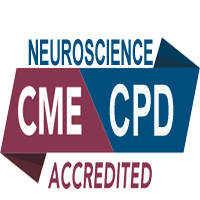Anita Saltmarche
Saltmarche Health & Associates Inc., Canada
Title: Impact of Physical and Mental Insults on Dementia: Clinical Observations following a Transcranial- Intranasal Photobiomodulation Therapy Study
Biography
Biography: Anita Saltmarche
Abstract
Observations reported here range from 1 week to 1 year following a randomized, single-blind placebo-controlled pilot study to assess the effect of near infrared transcranial and intranasal photobiomodulation therapy (PBMT) on cognition in 19 participants over 12 weeks with a 4-week no-treatment follow-up. Randomization included 13 into active and 6 into sham treatments. Participants were assessed with MMSE and ADAS-cog scales. Participants with moderate to severe impairment (MMSE baseline of 5-24) who received active treatment showed significant improvements on each test (p<0.03) after 12 weeks. They also reported better sleep, fewer angry outbursts, decreased anxiety, and less wandering. Declines were noted during the final 4 weeks without treatments. No related adverse events were reported. After the 16-week study all participants were given active PBMT devices for home treatment. We continued to monitor the participants every 6 to 8 weeks, and observed that those with physical and mental insults suffered negative impact on their cognition, whereas those who did not, retained or continued with improvements. Physical insults included foot ulcer, chronic pain, influenza, major surgery, and pneumonia. Mental insults included grief from a family loss, property fire, work-related and emotional stress. In conclusion, we observed that improvements from PBMT were maintained when those with dementia did not experience physical trauma and mental stress. Although these observations relate to a PBMT study, they suggest that the effects of additional diseases, accidents, and mental/emotional stress factors need to be incorporated into data analysis that could develop into long-term treatment protocols for dementia.

